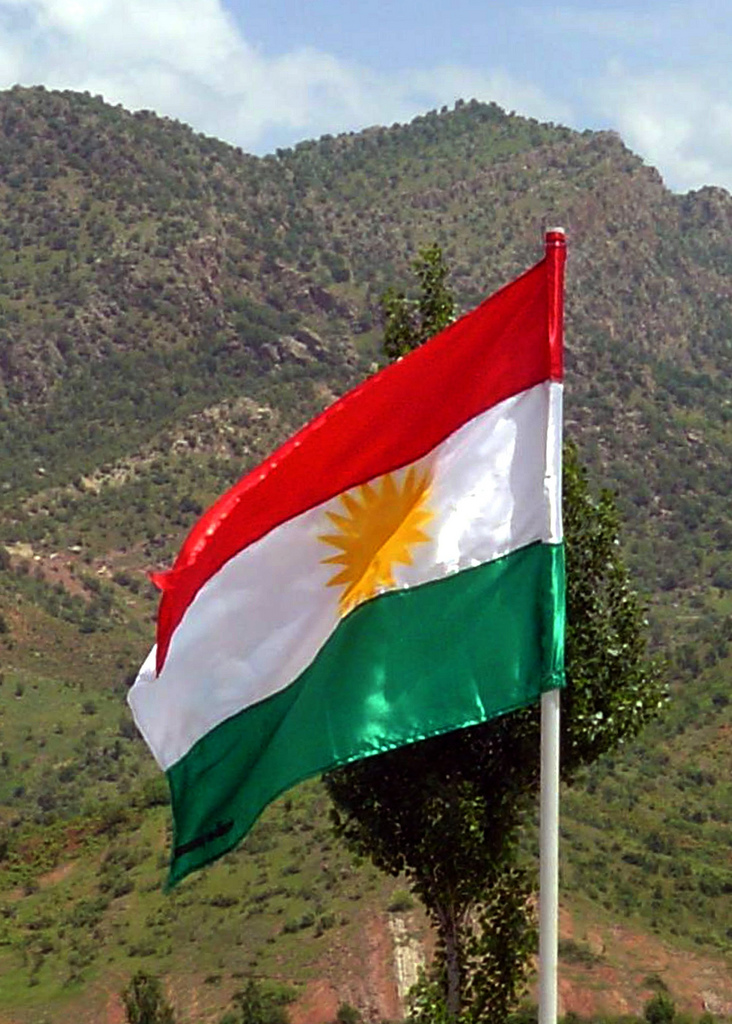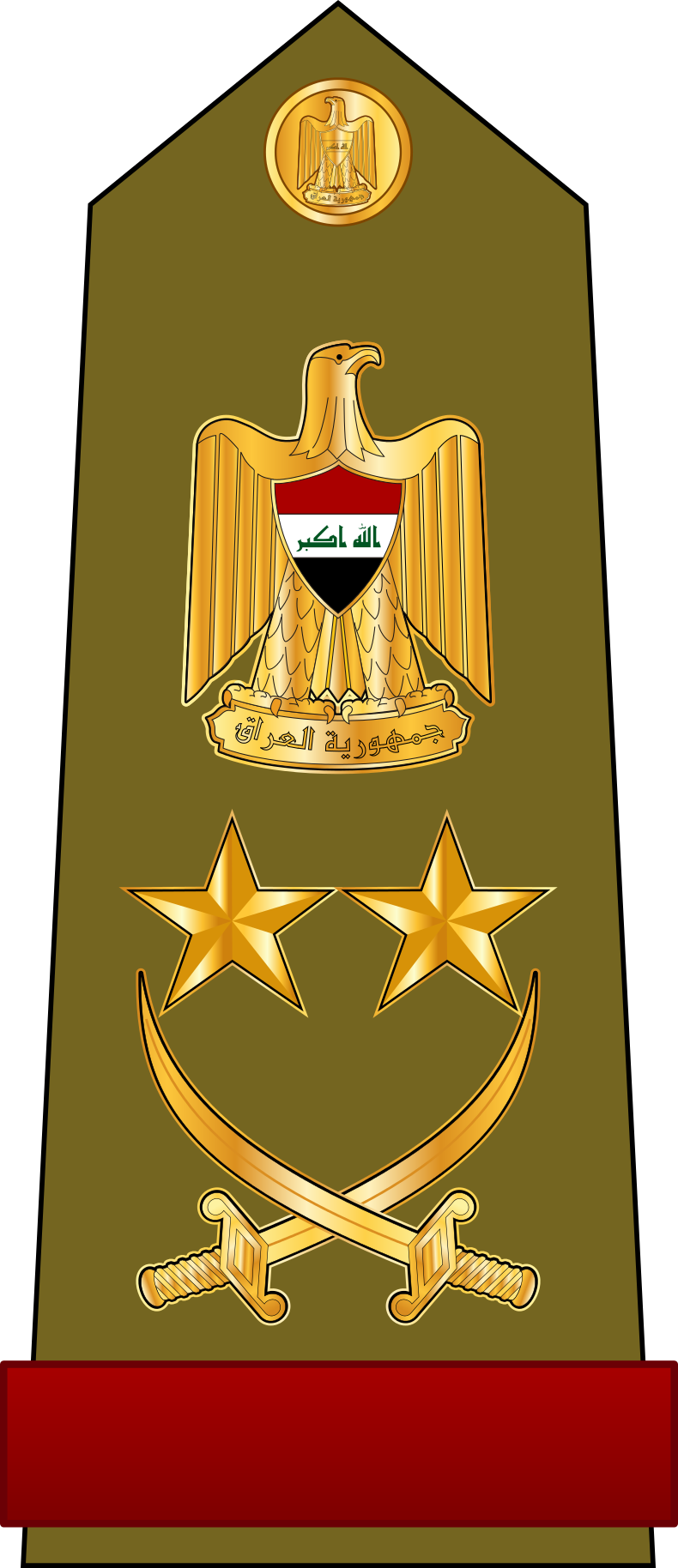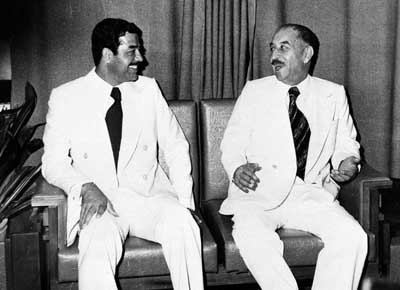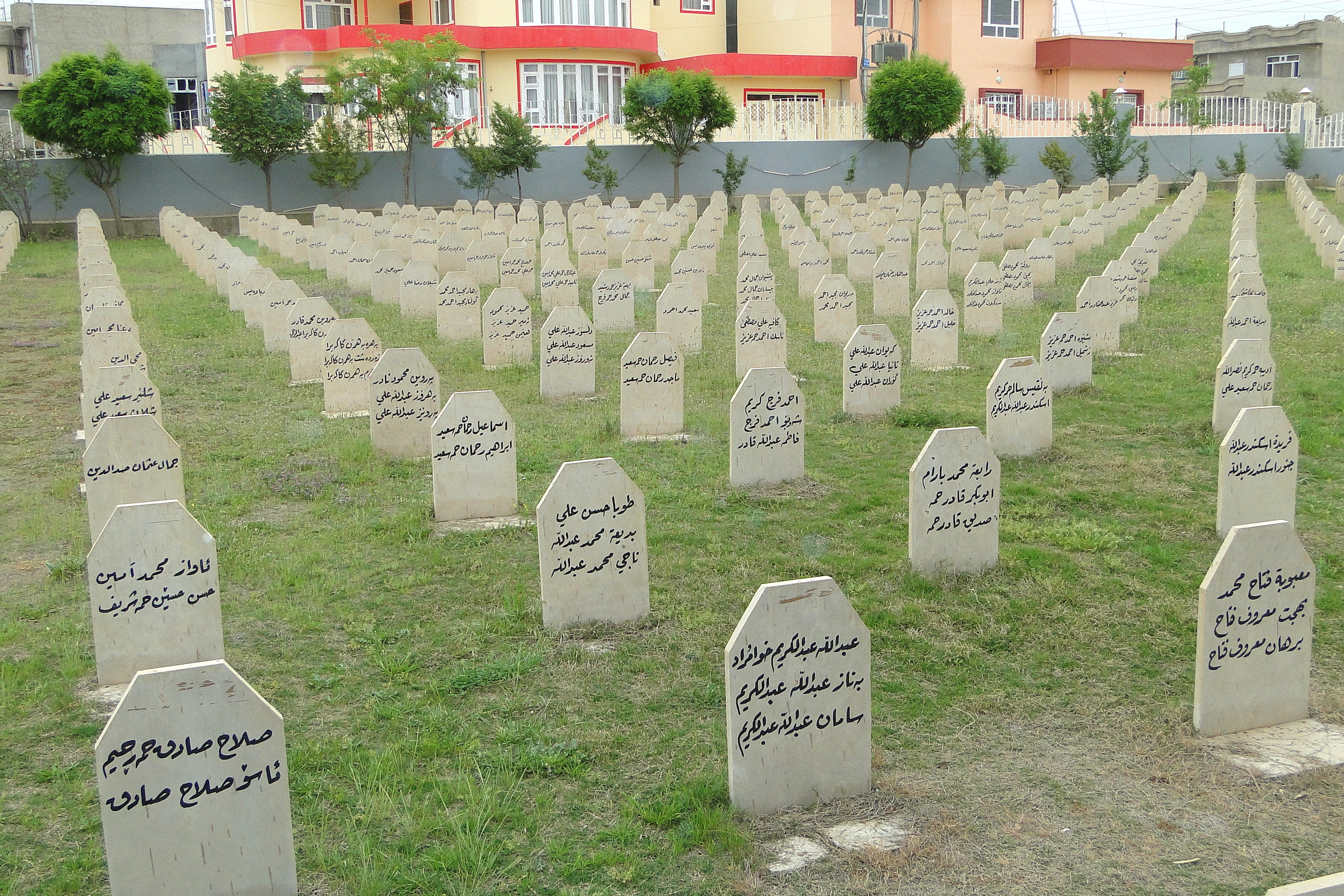|
Anfal Genocide
The Anfal campaign was a counterinsurgency operation which was carried out by Ba'athist Iraq from February to September 1988 during the IraqiāKurdish conflict at the end of the IranāIraq War. The campaign targeted rural Kurds because its purpose was to eliminate Kurdish rebel groups and Arabize strategic parts of the Kirkuk Governorate. The Ba'athist regime committed atrocities on the local Kurdish population, mostly civilians. Although primarily targeting Kurds, other non-Arabs also fell victim to the Anfal campaign. The Iraqi forces were led by Ali Hassan al-Majid, on the orders of President Saddam Hussein. The campaign's name was taken from the title of the eighth chapter of the Qur'an (''al-Ź¾anfÄl''). In 1993, Human Rights Watch released a report on the Anfal campaign based on documents captured by Kurdish rebels during the 1991 uprisings in Iraq; HRW described it as a genocide and estimated between 50,000 and 100,000 deaths. This characterization of the Anfal cam ... [...More Info...] [...Related Items...] OR: [Wikipedia] [Google] [Baidu] |
Kurdistan Region
Kurdistan Region (KRI) is a semi-autonomous Federal regions of Iraq, federal region of the Iraq, Republic of Iraq. It comprises four Kurds, Kurdish-majority governorates of Arabs, Arab-majority Iraq: Erbil Governorate, Sulaymaniyah Governorate, Duhok Governorate, and Halabja Governorate. It is located in northern Iraq, which shares borders with Iran to the east, Turkey to the north, and Syria to the west. It does not govern all of Iraqi Kurdistan and lays claim to the disputed territories of Northern Iraq, disputed territories of northern Iraq; these territories have a predominantly non-Arab population and were subject to the Ba'athist Arabization campaigns in northern Iraq, Ba'athist Arabization campaigns throughout the late 20th century. Though the KRI's autonomy was realized in 1992, one year after Iraq's defeat in the Gulf War, these northern territories remain contested between the Kurdistan Regional Government (in Erbil) and the Federal government of Iraq, Government of I ... [...More Info...] [...Related Items...] OR: [Wikipedia] [Google] [Baidu] |
Jash (term)
Jash ( Kurdish: Ų¬Ų§Ų“, CaÅ; from Ų¬ŪŲŲ“, CehÅ; meaning 'donkey foal') is a Kurdish term for a traitor, or a collaborator. It refers to Kurds who are either fully loyal to the enemy, or cooperate with the enemy against the Kurdish nation, Kurdish militant groups, or Kurdish political interests. The term is considered derogatory in a cultural sense, in much the same way as the use of the term '' quisling'' in the Western world. The National Defense Battalions, the Village Guards, and the Muslim Peshmerga are considered "jash" by some Kurds. History The Light regiments were first established in the 1940s, during the 1943 Barzani revolt in northern Iraq, then it flourished and start to take an important role in the 1960s during the First IraqiāKurdish War, when General Khaleel Jassim was in the command of these regiments and associated them with many Iraqi Army operations against the Kurd rebels, specially in Amadiya in 1965 and Rawandiz 1966. During the al-Anfal ... [...More Info...] [...Related Items...] OR: [Wikipedia] [Google] [Baidu] |
1991 Uprisings In Iraq
The 1991 Iraqi uprisings were ethnic and religious uprisings against Saddam Hussein, Saddam Hussein's Ba'athist Iraq, Ba'athist regime in Iraq that were led by Shia Islam in Iraq, Shia Arabs and Kurds in Iraq, Kurds. The uprisings lasted from March to April 1991 after a ceasefire following the end of the Gulf War. The mostly uncoordinated insurgency was fueled by the perception that Iraqi President Saddam Hussein had become vulnerable to regime change. This perception of weakness was largely the result of the outcome of the IranāIraq War and the Gulf War, both of which occurred within a single decade and devastated the Demographics of Iraq, population and economy of Iraq. Within the first two weeks, most of Iraq's cities and Governorates of Iraq, provinces fell to rebel forces. Participants in the uprising were of diverse ethnic, religious and political affiliations, including military mutineers, Shia Islamism, Shia Islamists, Kurdish nationalism, Kurdish nationalists, Ku ... [...More Info...] [...Related Items...] OR: [Wikipedia] [Google] [Baidu] |
Al-Anfal
Al-Anfal (, ; The Spoils of War, Earnings, Savings, Profits) is the eighth chapter (sÅ«rah) of the Quran, with 75 verses ( ÄyÄt). Regarding the timing and contextual background of the revelation ('' asbÄb al-nuzÅ«l''), it is a " Medinan surah", completed after the Battle of Badr. It forms a pair with the next surah, At-Tawba. According to the eminent Muslim philosopher Abul A'la Maududi, the chapter was probably revealed in 2 A. H. after the Battle of Badr, the first defensive clash between Meccans and Muslim people of Medina after they fled from persecution in Mecca. As it contains an extensive point-by-point survey of the Battle, it gives the idea that most presumably it was uncovered at very much the same time. Yet, it is additionally conceivable that a portion of the verse concerning the issues emerging because of this Battle may have been uncovered later and joined at the best possible spots to make it a consistent entirety. Summary *1 Spoils belong to God and ... [...More Info...] [...Related Items...] OR: [Wikipedia] [Google] [Baidu] |
Kirkuk Governorate
Kirkuk Governorate (; ; ) or Kirkuk Province is a governorate in northern Iraq. The governorate has an area of . In 2017, the estimated population was 1,259,561 people. The provincial capital is the city of Kirkuk. It is divided into four Districts of Iraq, districts. The province was named Kirkuk Governorate until 1976, when it was named At-Ta'mim Governorate, meaning "nationalization", referring to the national ownership of the regional Petroleum, oil and natural gas reserves. In 2006, the name "Kirkuk Governorate" was restored. Governorate government *Governor: Rakkan Saeed al-Jabouri, Rakkan Saeed al-Jabbouri Districts Demographics Kirkuk Governorate borders were altered in 1976; when 4 districts were added to the Sulaymaniyah Governorate, Sulaymaniya, Diyala Governorate, Diyala and Saladin Governorate, Saladin Governorates. The Kirkuk Governorate received the Arab populated Zab District from the Mosul Governorate. With the Arabization policies of the Ba'ath party, the ... [...More Info...] [...Related Items...] OR: [Wikipedia] [Google] [Baidu] |
IraqiāKurdish Conflict
The IraqiāKurdish conflict consists of a series of wars, rebellions and disputes between the Kurds and the central authority of Iraq starting in the 20th century shortly after the defeat of the Ottoman Empire in World War I. Some put the marking point of the conflict beginning to the attempt by Mahmud Barzanji to establish an independent Kingdom of Kurdistan,"The Iraqi State and Kurdish Resistance, 1918ā2003" [...More Info...] [...Related Items...] OR: [Wikipedia] [Google] [Baidu] |
Hussein Rashid
Hussein Rashid Mohammed al-Tikriti (; 1 January 1940) is an Iraqi former military officer who formerly served as the Chief of the General Staff of the Iraqi Armed Forces under the rule of Saddam Hussein. A fierce loyalist to Iraqi president Saddam Hussein, Rashid was also a tough and competent general. Middle Eastern military and political affairs analyst Kenneth M. Pollack listed Rashid as an example of Arab generals in recent decades who had proven to be "first-rate generals", listing him alongside Syria's Ali Aslan and Jordan's Zaid ibn Shaker. Early life Hussein is a Arabized Kurd and was born in the town of Khezamia, near Tikrit, in 1940. He received his primary and secondary education in Tikrit. Military career Hussein joined the military, and graduated from the Iraqi Military Academy in 1962 with a Bachelor's in military science. He graduated from the Iraqi Joint Staff College in 1968 with a master's degree in military science. He also later received a PhD in the s ... [...More Info...] [...Related Items...] OR: [Wikipedia] [Google] [Baidu] |
Ali Hassan Al-Majid
Colonel General Ali Hassan al-Majid al-Tikriti (; ā 25 January 2010), was an Iraqi military officer and politician under Saddam Hussein who served as Defense minister, Interior minister, and chief of the General Security. He was also the governor of Kuwait during much of the Gulf War. A first cousin of former Ba'athist Iraqi President Saddam Hussein, al-Majid became notorious in the 1980s and 1990s for his alleged role in the Iraqi government's campaigns against internal opposition forces, namely the Kurdish rebels of the north, and the Shia rebels of the south. Repressive measures included deportations and mass killings; al-Majid was dubbed "Chemical Ali" (, ) by Iraqis for his use of chemical weapons in attacks against the Kurds."How the mighty are falling" ''The Economist'', ... [...More Info...] [...Related Items...] OR: [Wikipedia] [Google] [Baidu] |
Saddam Hussein
Saddam Hussein (28 April 1937 ā 30 December 2006) was an Iraqi politician and revolutionary who served as the fifth president of Iraq from 1979 until Saddam Hussein statue destruction, his overthrow in 2003 during the 2003 invasion of Iraq, U.S. invasion of Iraq. He previously served as the Vice President of Iraq, vice president from 1968 to 1979 and also as the prime minister of Iraq, prime minister from 1979 to 1991 and later from 1994 to 2003. A leading member of the Ba'ath Party, Arab Socialist Ba'ath Party, he espoused Ba'athism, a mix of Arab nationalism and Arab socialism, while the policies and political ideas he championed are collectively known as Saddamism. Born near the city of Tikrit to a Sunni Islam, Sunni Arabs, Arab family, Saddam joined the revolutionary Ba'ath Party in 1957. He played a key role in the 17 July Revolution that brought the Ba'athists to power and made him Vice President of Iraq, vice president under Ahmed Hassan al-Bakr. During his tenure ... [...More Info...] [...Related Items...] OR: [Wikipedia] [Google] [Baidu] |
Arabization
Arabization or Arabicization () is a sociology, sociological process of cultural change in which a non-Arab society becomes Arabs, Arab, meaning it either directly adopts or becomes strongly influenced by the Arabic, Arabic language, Arab culture, culture, Arabic literature, literature, Islamic art, art, Arabic music, music, and Arab identity, ethnic identity as well as other Sociocultural system, socio-cultural factors. It is a specific form of cultural assimilation that often includes a language shift. The term applies not only to cultures, but also to individuals, as they acclimate to Arab culture and become "Arabized". Arabization took place after the Early Muslim conquests, Muslim conquest of the Middle East and North Africa, as well as during the more recent Arab nationalism, Arab nationalist policies toward non-Arabic speaking minorities in modern Arab world, Arab states, such as Algeria, Ba'athist Arabization campaigns in northern Iraq, Iraq,''Iraq, Claims in Conflict: Re ... [...More Info...] [...Related Items...] OR: [Wikipedia] [Google] [Baidu] |
Anti-Kurdish Sentiment
Anti-Kurdish sentiment, also known as anti-Kurdism or Kurdophobia, is hostility, fear, intolerance or racism against the Kurds, Kurdish people, Kurdistan, Kurdish culture, or Kurdish languages. A person who holds such positions is sometimes referred to as a "Kurdophobe". GĆ©rard Chaliand coined the term to describe how Kurds have been oppressed. In Turkey, the government has historically denied Kurdish identity and Kurdish language, language. In Syria and Iraq, similar anti-Kurdish policies have caused significant harm, including Anfal campaign, genocidal campaigns in Iraq under Saddam Hussein. Recently, conflicts like the War against the Islamic State, fight against ISIS have increased awareness but also heightened anti-Kurdish actions and discrimination. Kurds in Japan, In Japan, anti-Kurdish posts, allegedly made by Turkish people using machine translation, saw a surge in anti-Kurdish sentiment beginning in 2023. Kurds there have been receiving death threats and demands for t ... [...More Info...] [...Related Items...] OR: [Wikipedia] [Google] [Baidu] |
Counterinsurgency
Counterinsurgency (COIN, or NATO spelling counter-insurgency) is "the totality of actions aimed at defeating irregular forces". The Oxford English Dictionary defines counterinsurgency as any "military or political action taken against the activities of guerrillas or revolutionaries" and can be considered war by a state against a non-state adversary. Insurgency and counterinsurgency campaigns have been waged since ancient history. Western thought on fighting 'small wars' gained interest during initial periods of European colonisation, with modern thinking on counterinsurgency was developed during decolonization. During insurgency and counterinsurgency, the distinction between civilians and combatants is often blurred. Counterinsurgency may involve attempting to win the hearts and minds of populations supporting the insurgency. Alternatively, it may be waged in an attempt to intimidate or eliminate civilian populations suspected of loyalty to the insurgency through indiscri ... [...More Info...] [...Related Items...] OR: [Wikipedia] [Google] [Baidu] |







